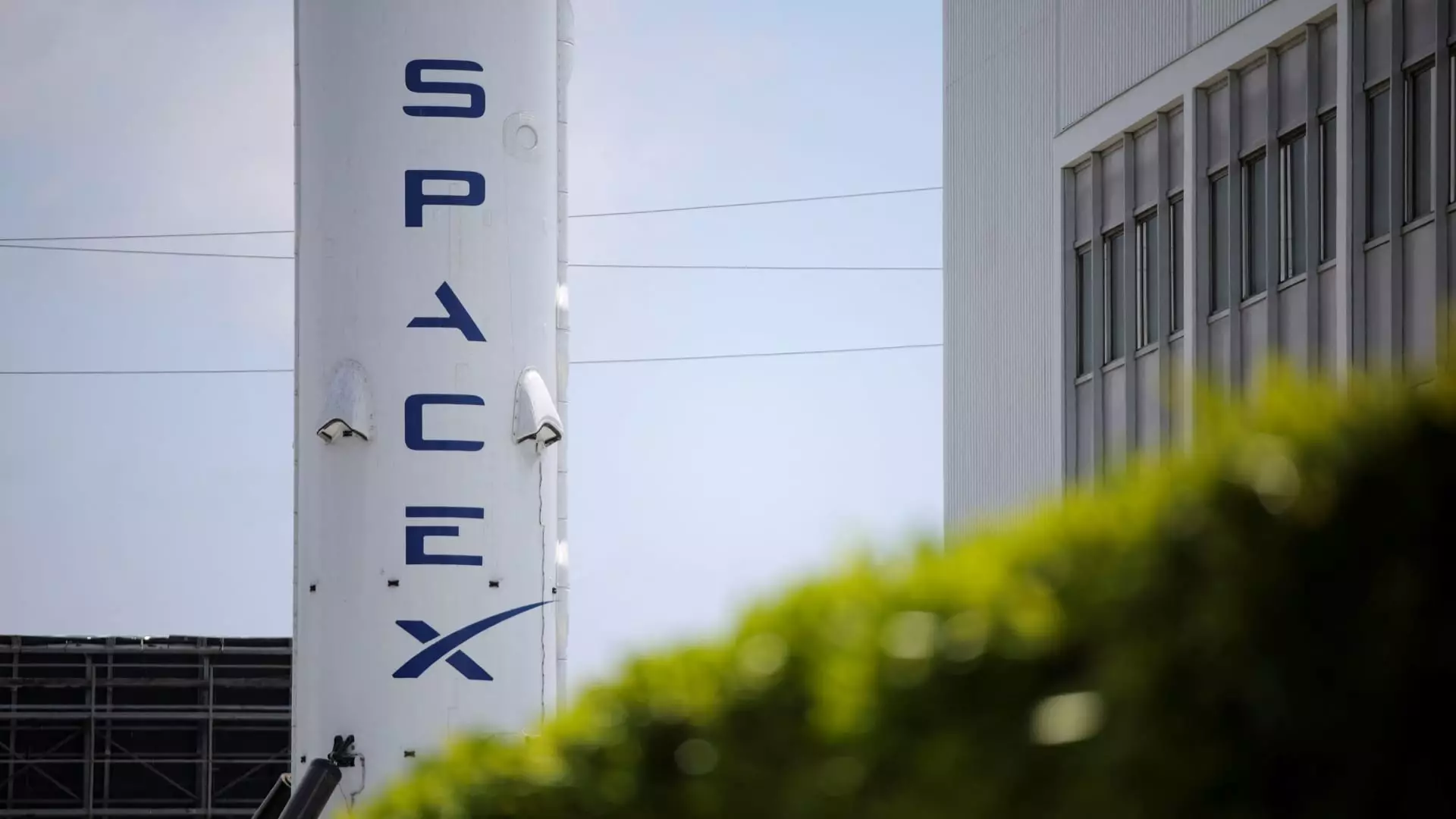The escalating tension between former President Donald Trump and Elon Musk, the mercurial billionaire known for reshaping the aerospace industry, is proof that we are living in an era where personal grudges can have profound ramifications on national interest. Recently, Trump instructed the Defense Department and NASA to conduct a meticulous review of SpaceX’s multi-billion dollar contracts, a move that raises eyebrows and questions about the intersection of politics and business in the United States. The threat of retaliation hangs heavily over SpaceX, especially given the growing dependence of the U.S. government on its services in space exploration and national security.
It is not just an industrial spat; it’s a glaring illustration of a dysfunctional relationship between the government and key private sector players. The review ordered by the White House appears to be more than just a precautionary measure; it seems to be a political weapon aimed at Musk and his empire. What does this reveal about an administration that would juxtapose personal grievances with governance? The irony is palpable as Trump, once backed by Musk, threatens to cancel contracts that today are crucial for U.S. aerospace capabilities.
SpaceX: National Security or Political Pawn?
SpaceX has undeniably become a cornerstone of U.S. aerospace and defense initiatives, launching satellites and transporting men to the International Space Station under NASA’s auspices. Musk’s Dragon spacecraft is the only active American vehicle capable of such tasks, embodying a national interest that goes beyond corporate profit. Yet, the potential for contracts to be scrutinized through the lens of political rivalry rather than merit and capability exposes a troubling precedent where national security could be jeopardized by a feud between two powerful figures.
Scott Amey, a noted expert on government contracts, pointedly remarked that the examination of Musk’s agreements could succumb to the whims of personal dynamics rather than objective assessment. This raises critical concerns about how swiftly an administration may act based on vendettas rather than the best interests of the American public. Should contracts powering our security apparatus be vulnerable to the trivialities of a petty squabble?
The Dangerous Precedent of Political Retaliation
One cannot overlook the stark implications of politicizing substantial contracts tied to national security programs. The review ordered by the Trump administration, which could lead to canceling crucial contracts, presents a dangerous game. If a precedent is set where businesses can be penalized for unflattering public perceptions or offhand comments, it invites a culture of fear among industry leaders who may steer clear of honest dialogue for fear of losing government contracts.
The fundamental problem lies in the acute lack of a robust framework that shields private enterprises from the twilight of political vendettas. What we face is a political battleground masquerading as national policy, one where decisions are made on subjective whims rather than a clear, calculated assessment of public benefits.
Musk’s Relinquishing of Criticism
Musk himself has felt the political sting, as evidenced by his hurried attempts to backtrack on public criticisms of Trump. His calls for impeachment and sensational linkages to scandals illustrate a man who felt more compelled than ever to speak out against a president who had once supported him. However, it also highlights an unsettling reality: that a stalwart of innovation might have to bend to the political winds to secure the very contracts that keep his pioneering enterprise afloat.
As SpaceX continues to entwine itself with U.S. defense mechanisms through unfathomable contracts, the rhetoric surrounding its leadership reveals a paradox. Musk’s early-aggressive stance has transformed into a cautious dance of practicality, underscoring the tension between revolutionary ambition and survival in the high-stakes world of government contracts.
Military experts and governance watchdogs have rightfully raised alarms about the implications of this tug-of-war. Are we willing to allow the geopolitical chessboard to intertwine with personal animosities, jeopardizing crucial advancements in aerospace technology? Such questions linger ominously, and the political implications extend far beyond SpaceX or Musk, becoming reflective of the kind of governance citizens deserve. The balance between innovation and accountability is a tightrope that demands attention, lest we veer toward a landscape where personal grievances shape the fabric of public interest.


Leave a Reply